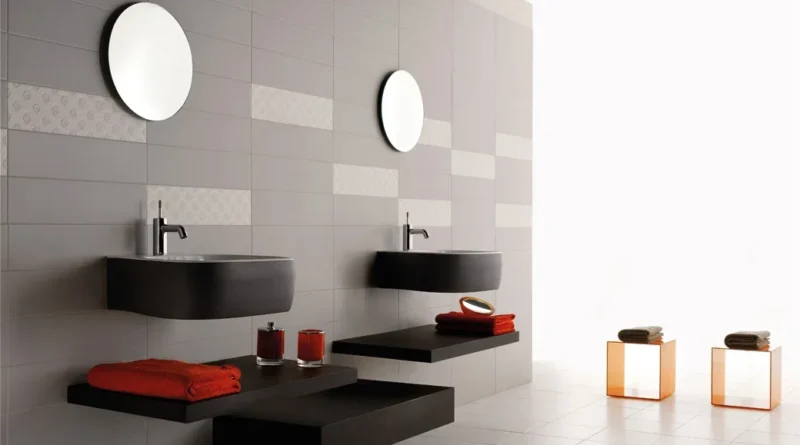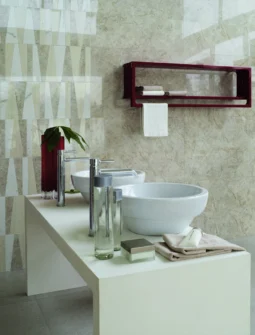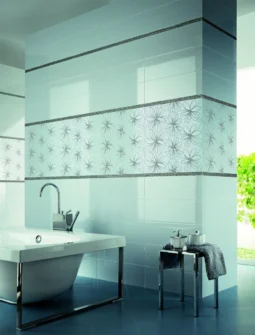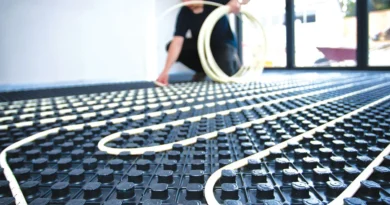How to choose the best ceramic tiles
Think carefully before you choose. Plan ahead. Tiles you buy will last you for several decades – cheap is not always economical and the most expensive choice doesn’t have to be the best. Consider your wishes and options, use your imagination, consult interior decorating magazines, look through manufacturers prospects, shop around and maybe you will find the perfect tiles for you.
Dark tiles are not more expensive than the bright ones, so you can end up with a beautiful or dull bathroom for the same amount of money. Look around because the offer and prices differ from store to store.
Before you install ceramic tiles make sure that you have hired the best person for that job. Ask around and check you craftsman credentials and previous work.
Foundation for floor tiles is also very important, if not prepared correctly it can cause tiles to break and crack in time. Skilled craftsman will give you the exact measures of the room and how much tiles, glue and grout you have to buy. The space between the tiles is a matter of individual taste but it is usually 3 mm for floor tiles, between 3-5 for rustic and tiles with uneven edges, from 5-8 mm for industrial tiles and between wall tiles the space is usually over 3 mm.
Shopping for the first class ceramic tiles
It is always best to buy first class ceramic tiles. There is a reason why tiles are divided into classes. They usually look the same at the first glance, but after several years that difference between classes will be quite visible when the third class tiles begin to crack and deteriorate. The difference in price for the first and the third class tiles is not big. Do not listen to the salesman who will try to convince you that there is no difference between the first and the third class of tiles.
Our market is flooded with Italian and Spanish tiles. Be careful, not all Italian and Spanish tiles are actually produced in Italy or Spain. On the back of those tiles there is no manufacturer’s signature which says a lot about their quality.
Ceramic tiles for floor, wall,bathroom …
Wall tiles are double fired, glazed and softer than floor tiles. They are very slippery so it is not smart to use them as floor tiles, no matter what the salesman may try to tell you.
Do not forget that most accidents at home happen in the bathroom. Tiles for bathroom, kitchen and hallways should be anti slippery, and tiles for the balcony should be frost resistant.
Try out the tiles before you buy them, step on them, poor water over them and watch how they react. Check how thick the tile is. Hungarian tiles are cheap, but thin and not very durable. For high frequency traffic places always buy high quality tiles that will last longer. Granite ceramics are great for that purpose. There are rustic and uneven granite tiles. If you wish to combine polished and unpolished granite check the dimensions of the tiles. Polishing makes changes in the dimensions so often all tiles of the same series do not have the same dimensions.
Trade marks and installing
Always check for certain trademarks on the box or in the tile catalogue:
- Frost resistance
- Percentage of moisture absorption – outdoors ceramics should have small percentage
- Thickness of the tile (8-9 mm in average)
- Hardness according to MOHS scale from 1-10 (10 is for diamond). For floor tile everything over 5 is ok.
- Resistance to slipping – R9 is the smallest friction value (for wall tiles) up to R13
- Resistance to chemicals (for industrial tiles)





